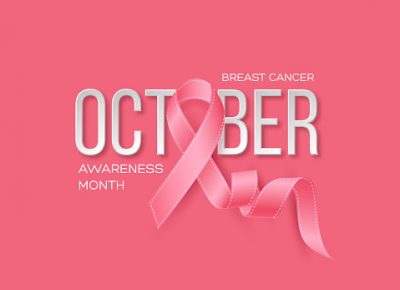Monthly Archives: April 2024
What to Expect at 37 Weeks Pregnant – Third Trimester Information

You are 37 weeks pregnant and your pregnancy is quickly coming to an end, but your little one still has a bit more growing to do. This week, your baby is probably gaining about a half an ounce each day, adding fat and plumping up before birth. Keep in mind that, although you are super close to your due date, your baby is still considered to be in the “early term” stage at this point. Your baby won’t be considered “full term” until week 39.
What are symptoms like at 37 weeks pregnant?
Pelvic pain or pressure. Is your baby sitting lower in your pelvis these days? This dropping — also called lightening or engagement — can occur a few weeks before your baby is born, and you might notice it if you feel a little extra pressure on your lower abdomen. This pelvic pain can even make it hard for you to walk. If pelvic pressure is causing you discomfort, a warm bath may provide some relief. Contact your healthcare provider for more advice on what to do to relieve pelvic or lower back pain.
Shortness of breath. Your baby might not have dropped yet and is pressing up against your lungs, making breathing a little more difficult. Try to rest more, move slowly and sit or stand up straight to help give your lungs more room to expand with each breath. Once your baby “drops” lower into your pelvis, this may take some pressure off your lungs and diaphragm, making it easier for you to breathe.
Nausea. Some moms-to-be experience nausea around 37 weeks pregnant, and it could be a sign that labor is about to start. Try to eat four or five smaller meals instead of three larger meals. Bland foods like rice, toast or bananas can also help get you through these bouts of nausea.
Snoring. This one might not trouble you as much as your partner. Most moms-to-be go through some breathing changes during pregnancy thanks to hormonal changes, and toward the end, some snoring is not uncommon as the mucus membranes in your nasal passages tend to dry out. Make sure you stay hydrated and use a humidifier in your bedroom.
Unstable on your feet. By now, your pregnancy weight gain means your center of gravity has shifted, making it easier for you to lose your balance. This extra weight from your baby, the placenta, amniotic fluid, and more can make it challenging to move around. Once your baby drops lower into your pelvis, the distribution of your weight may even change again, so be extra careful whenever you’re on your feet! To keep yourself steady, stand with your feet pointed in the same direction with your weight balanced evenly on both feet. Try not to tilt your pelvis forward or backward, and avoid lifting or carrying heavy or bulky items.
Contractions. At 37 weeks pregnant, you could start to feel contractions that you might recognize as being similar to menstrual cramping. Contractions that are irregular and go away when you move or change positions are likely Braxton Hicks “practice” contractions. But, if you feel contractions that occur regularly, get progressively stronger, and don’t subside if you move or change positions, you’ll want to call your healthcare provider for advice.
Practical plans for the birth
Still haven’t packed your hospital bag? Get to it! Your baby could arrive any day now.
This is also a good time to consider your support after the birth too. Who could you ask to help out every now and then?
Research your options for feeding your baby. The choice of breastfeeding or formula feeding is yours to make, but you may want to find out more about each. You can talk to your healthcare provider or a lactation consultant to get more information.
If you haven’t already purchased one, you’ll need a rear-facing car seat properly installed in time for your baby’s trip home from the hospital. Make sure the car seat you buy meets all safety standards.
You may want to ask for help from trusted friends, neighbors, or family members with things like grocery shopping, laundry, or looking after your older children or family pets in the first few weeks with your newborn. Make a list of what you might need help with so that your helpers know exactly what they can do to lighten the load.
Have additional questions about the third trimester? Planning a pregnancy? Would you like to meet with Providers and Other Parents?
Join us at Delaware Valley OB-GYN’s next Birth Babies and More Event on Tuesday, Dec. 5 at 6 p.m.
We’ll discuss the third trimester, labor, delivery and the exciting newborn period.
RSVP HERE
October Breast Cancer Awareness: Now is the Time to Schedule Your Annual Exam!

While breast cancer awareness articles and events are everywhere. What does breast cancer mean for you as an individual? It’s a scary thought and all too many women assume that it won’t happen to them. Fact is though, every two minutes a woman is diagnosed with breast cancer in the US. And – it is the most common cancer for women worldwide.
So, if you haven’t already, educate yourself in breast cancer awareness and find out your risk level. Get a medical check-up. And, if you need one, a mammogram. It might save your life.
Here are some Breast Cancer Awareness facts:
- Female breast cancer represents 15.2% of all new cancer cases in the U.S.
- 1 in 8 American women will develop breast cancer in her lifetime.
- Although far rarer (the risk is only 1 in 1000), an estimated 2,670 men will be diagnosed with this cancer this year.
- The disease takes the lives of more than 40,000 American women each year and has directly or indirectly touched almost all our lives.
- Education, fundraising and research has not resulted in a cure.
Breast Cancer Awareness: Early Signs
Early signs of breast cancer can be a lump in a breast, a painful breast or armpit or a discharge from the nipple. Even if none of these symptoms present themselves, a doctor should be visited to be sure. A doctor will most likely perform a manual exam and send you for a mammogram. A mammogram examination is painless and only takes about 10-20 minutes.
If any of these symptoms do present themselves there’s no need to panic. The pain can be a sign of a cyst or the lump can be benign. It’s always better to be sure by having a medical expert examine you.
Risk Factors for Breast Cancer
All women are at risk for breast cancer. Increased risk factors include a family history of cancer, atypical hyperplasia, delaying pregnancy until after age 30, no children or no breast-feeding, early menstruation (before age 12) late menopause (after age 55), current use (in the last 10 years) of oral contraceptives, more than 4 years of hormone replacement use, postmenopausal obesity, alcohol consumption, exposure to second-hand cigarette smoke, low physical activity and exposure to radiation.
These and other risk factors can have varying effects on the likelihood of developing breast cancer. It is important to remember that all risk factors are based on probabilities, and even someone without any risk factors can still get breast cancer. Proper screening and early detection remain the best weapons against mortality associated with this disease.
Scheduling an Annual Exam and Mammogram
The risk increases with age. That is why it is very important for all menopausal women to get regular mammograms.
A mammogram is a screening test which uses special X-ray images to detect abnormal growths or changes in breast tissue.
Mammography is your best defense because it can detect the disease in its early stages, before it can be felt during a breast exam. Research has shown that mammography can increase survival rates.
The American Cancer Society recommends women ages 40 to 44 should have a choice to start yearly screening mammograms if they would like. Women ages 45 to 54 should have a mammogram each year and those 55 years and over should continue getting mammograms every 1 to 2 years. You might need to start earlier if you have a family history and / or certain risk factors.
If you’ve never had a mammogram or you’re overdue, schedule an appointment with one of our women’s health experts for an evaluation.





